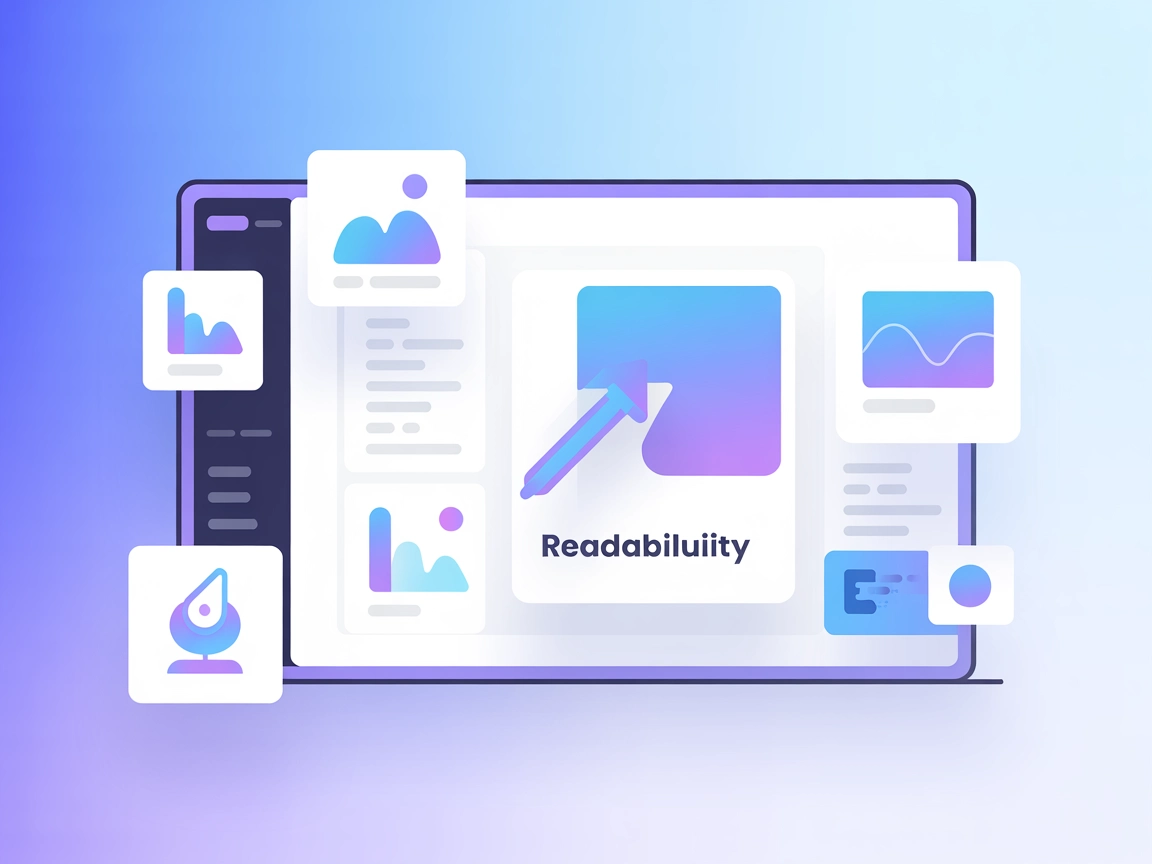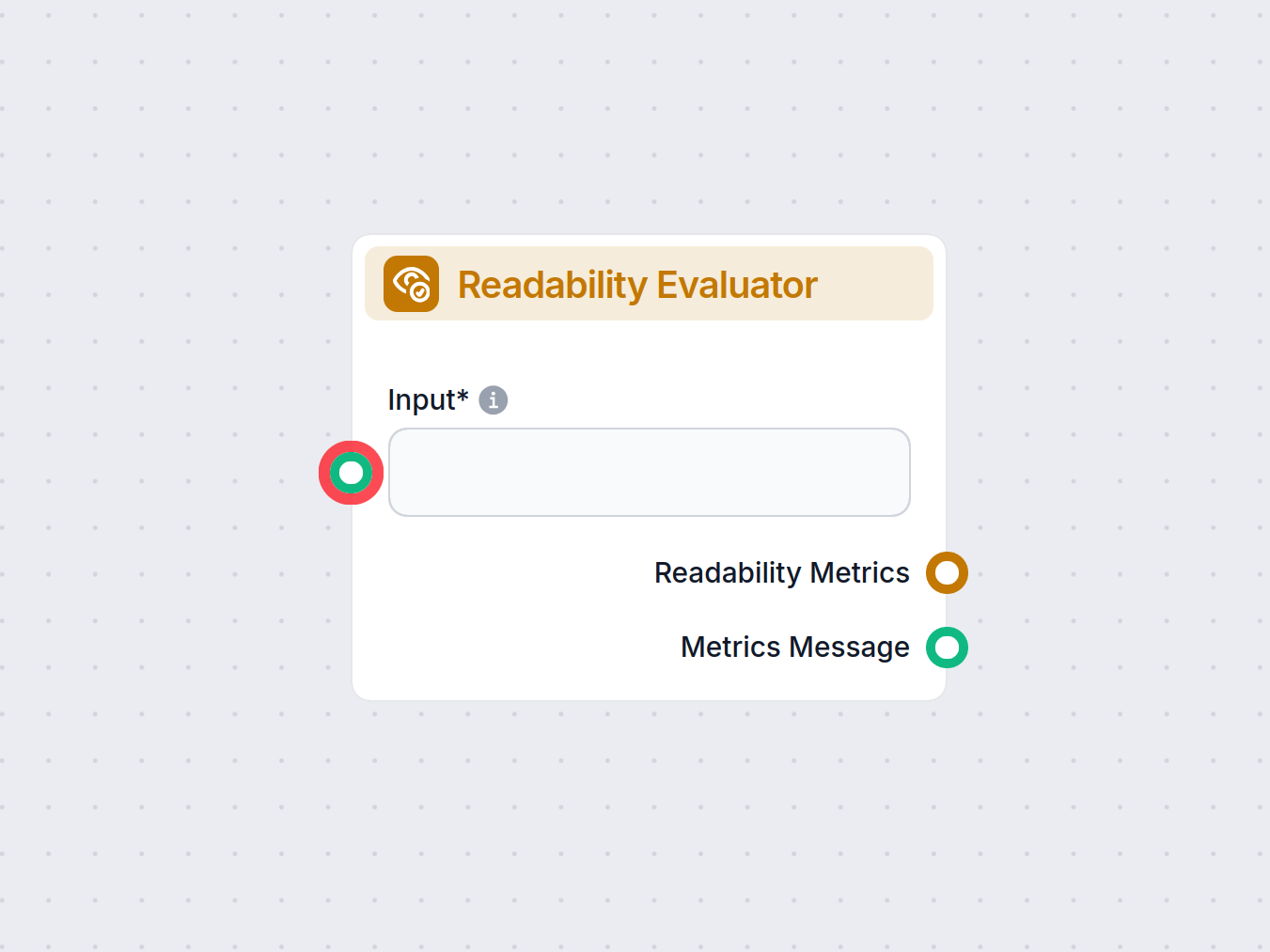
Readability Evaluator with URL as input
Enhance your content with the Readability Evaluator with URL as Input Tool that checks metrics like Flesch-Kincaid and ARI with FlowHunt.
AI Chatbot
Analyze and improve your content’s Dale Chall Readability score instantly. Check text or URLs and rewrite for better comprehension using FlowHunt’s free AI tools.
The Readability Evaluator is an advanced AI tool designed to instantly analyze and assess the complexity of any text using multiple established readability metrics. This powerful tool provides comprehensive insights that help you understand how accessible your content is to your target audience.
Comprehensive Analysis: Get detailed scores across 9 different readability metrics including Flesch-Kincaid Grade Level, Flesch Reading Ease, Dale-Chall Readability, Automated Readability Index (ARI), Coleman-Liau Index, Gunning Fog Index, SMOG Index, Spache Readability, and Linsear Write Formula - all in seconds.
Perfect for Content Creators: Whether you’re a blogger, journalist, copywriter, or content marketer, ensure your content hits the right complexity level for your audience. Studies show content with appropriate readability scores can increase engagement by up to 80% and reduce bounce rates significantly.
Educational Applications: Teachers and educators can quickly evaluate whether learning materials match students’ reading abilities. Academic researchers can ensure papers maintain appropriate scholarly standards while remaining accessible.
Business Communications: Corporate communicators can verify that customer-facing materials, technical documentation, and internal memos are clear and accessible. Improve customer satisfaction by ensuring product instructions and support materials are easily understood.
Accessibility Compliance: Meet accessibility standards and ensure your content is inclusive for readers with different literacy levels or cognitive abilities. This is particularly important for government agencies, healthcare providers, and organizations serving diverse populations.
SEO Optimization: Content with appropriate readability scores tends to perform better in search rankings. Google and other search engines factor in readability when determining content quality and user experience.
Time-Saving Solution: What would take hours to analyze manually can be done in seconds. Simply paste your text and receive instant, actionable insights to improve your writing.
Data-Driven Writing Improvement: Track your readability scores over time to objectively measure and improve your writing clarity. Perfect for professional development and writing skills enhancement.
Simply paste your text into the chat below, and the AI will immediately provide a detailed readability report with actionable insights to help you optimize your content for maximum impact and accessibility.
The Dale Chall Readability Tool evaluates the complexity of your text using the Dale-Chall formula, helping you determine how easy your content is to understand for different age groups.
The score is calculated based on the percentage of difficult words and sentence structure, giving a result from 1 (easiest) to 9.9 (most difficult). A score above 6.0 is considered easy for most people to understand.
You can analyze both plain text and content from any URL. The tool also offers AI-powered rewriting to improve readability automatically.
Yes, the tool is free to use, with limits on the number of messages per hour for each feature.
Simplify your content and make it easier to understand with our free Dale Chall Readability Tool. Analyze, compare, and rewrite text for better clarity.
Enhance your content with the Readability Evaluator with URL as Input Tool that checks metrics like Flesch-Kincaid and ARI with FlowHunt.
Discover the importance of Readability evaluator from text in assessing text complexity and ensuring content suitability for diverse audiences. Explore FlowHunt...
Assess the readability of any text in your workflow using the Readability Evaluator component. Instantly analyze input with established metrics like Flesch Kinc...
